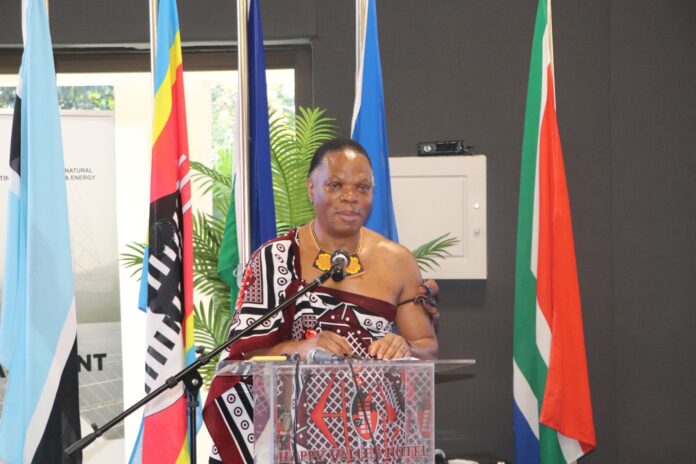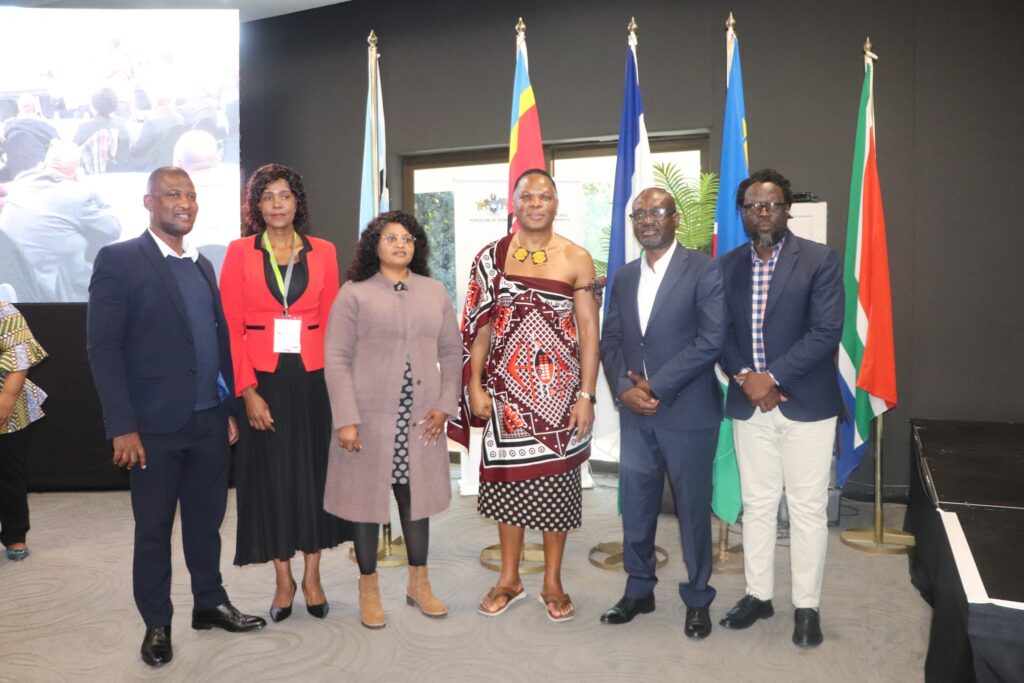The petroleum sector across the SACU region is facing unpreceedented shifts and the time for conventional conversation has passed.
Minister of Natural Resources and Energy Prince Lonkhokhela shared the above sentiments and stated that he urged moving from the comfort of routines into the challenges brought by transformation.
He was speaking during the Interstate Oil Committee seminar held at the Happy Valley Hotel. The seminar was attended by officials from the five Southern African Customs Union (SACU) countries, namely; Eswatini, Botswana, Lesotho, Namibia and South Africa.
He noted that the future demanded thinking bigger and being bolder. He urged that they accelerate the shift to cleaner cooking fuels, especially LPG and Biogas, and break down the barriers that hinder access and affordability.
The prince also called for more investments in biofuels and ethanol blending as part of a sustainable, home-grown energy solution.
He said the emergence of electric vehicles called for new infrastructure, new partnerships and new thinking.
“Natural gas demands strategic planning and harmonised policy responses. These are no longer future issues but they are current issues and the Interstate Oil Committee must lead and not follow. And as we reimagine the petroleum sector, let us challenge ourselves to ensure that women are not only beneficiaries of energy reforms but active entrepreneurs, leaders and decision-makers within them. Together, we can forge a cleaner, more resilient and future-ready petroleum landscape for the SACU region,” he said.
Further in the sphere of energy transition, he said the link between fuel use and carbon dioxide emissions was clear hence it was crucial to accelerate the shift to cleaner fuels.
For instance, he said paraffin remained a major cooking and lighting fuel in many countries, despite its negative health and environmental effects, hence the Interstate Oil Committee carrying the responsibility to promote cleaner fuel alternatives.
Focusing on cleaner cooking solutions, he said this not only enhanced environmental sustainability but also improved public health and addressed the disproportionate effects on women and girls. Despite national efforts to increase the uptake of LPG in Eswatini, there were still challenges such as supply bottlenecks, high costs, under-developed distribution networks, that hinder the uptake of LPG.
“I am optimistic that this dialogue will help us share experiences and best practices to improve access to LPG. I am encouraged by the presence of diverse local oil industry players such as the fuel retailers, oil companies and LPG suppliers.
I hope they will share their insights and also learn from other SACU Member States, as we work towards sustainable stability in the petroleum sector. Discussions should also focus on quality fuel supply, service, pricing methodologies and diversity of fuel sources,” he stated.









